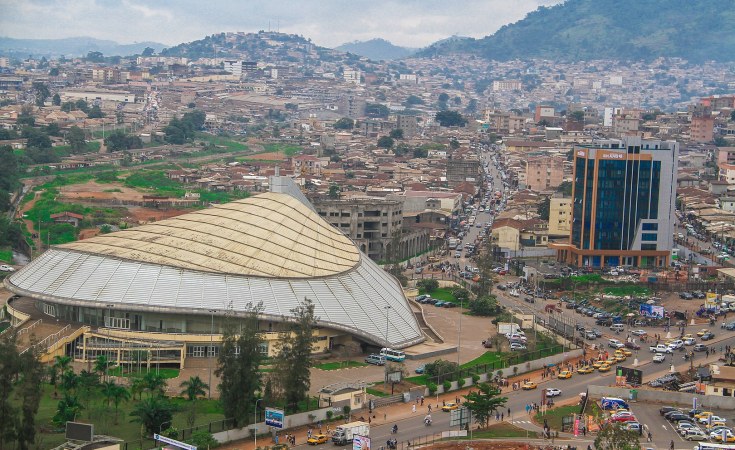Yaounde, Cameroon — A military court in Cameroon over the weekend charged a media mogul, a military officer, and a police commissioner with complicity in the January torture and killing of journalist Martinez Zogo. Cameroon laws state that crimes involving the use of weapons especially guns can be handled by a military court.
Cameroon President Paul Biya also ordered the military court to carry out the investigation into Zogo's death which led to media owner Jean-Pierre Amougou Belinga, a police boss, and several officers being detained last month.
Journalists in Cameroon are calling for justice despite receiving threats since Zogo's killing and, just days later, the killing of a radio host who was also calling for justice.
Cameroon media reported Saturday that business tycoon and media mogul Jean-Pierre Amougou Belinga, Lieutenant-Colonel Justin Danwe, and Police Commissioner Maxime Eko Eko are being held in a maximum-security prison in pre-trial detention along with several policemen and civilians.
A Yaoundé military tribunal charged the three men Saturday with complicity in the torture that led to the death of journalist Martinez Zogo in January.
Zogo's mutilated remains were found five days after his abduction in the capital, Yaoundé.
Seven other suspects detained in a series of February raids, including one on Belinga's house, were released Saturday without charges.
"What (we have) to retain is the strong message that the Cameroon judiciary is sending to the national and international community that Cameroon is a state of law, everyone can be held criminally responsible for his acts. Even though they still benefit from the presumption of innocence, they are now henceforth known as defendants and if after findings, there are sufficient evidence, the charges may move from accomplice to maybe, the perpetrators of torture on the journalist," said Richard Tamfu, a human rights lawyer and member of the Cameroon Bar Council.
But journalists in Cameroon say they feel like they are under attack.
Just two weeks after Zogo's killing, the body of another journalist, Jean Jacques Ola Bebe, was found in the capital.
The radio host and Catholic priest had called for justice for Zogo and told journalists he was receiving death threats.
Cameroon's government has yet to issue a statement on the death of Bebe.
The Cameroon Journalists Trade Union says it has recorded scores of reporters saying they and their relatives have been threatened since the killings of Zogo and Bebe and many suspect officials are involved.
Royal FM reporter in Yaoundé Mapalah Zita says she has received several hostile phone calls, the most recent one on Sunday.
"It is like we will even end up being scared of executing our job the way it is supposed to be done. You are sending out the right information and you are being threatened for it. Seriously, what we need is that the government should give us that liberty which we deserve so that we can practice in full freedom. Let us be free to carry out our job without any threat, without any fear of the unknown."
Journalists say they have reported the threats to the police. The police have not said if investigations into the allegations have been opened or not but told VOA that they will protect all journalists exercising their duties.
Cameroon's communication minister and government spokesman Rene Emmanuel Sadi last week warned journalists against what he described as emotional reporting on the Zogo and Bebe investigations.
He said there was no deliberate attempt to withhold information as reporters are claiming, adding that any communication while investigations are ongoing are by law to remain confidential.


